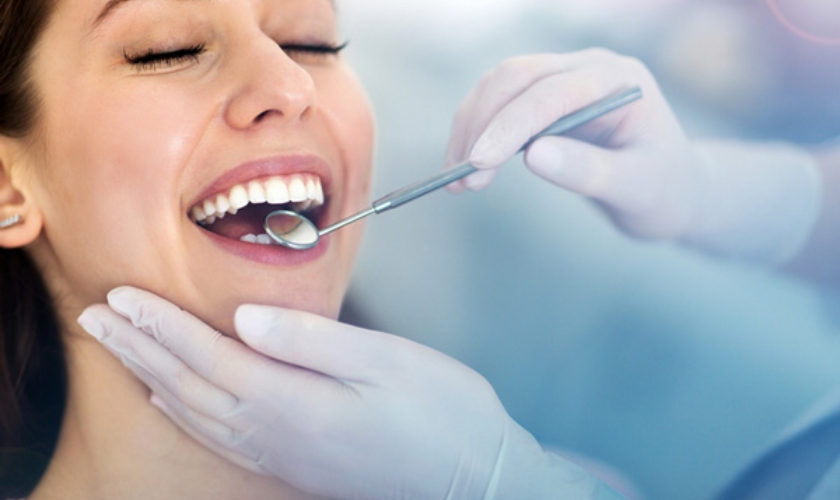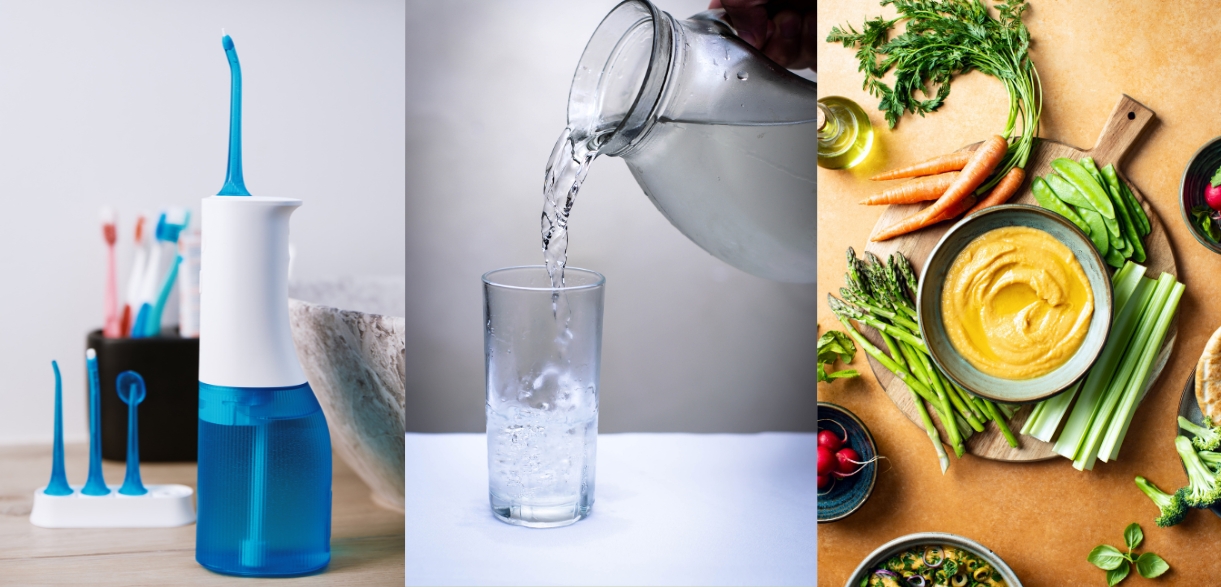Book An Appointment

Are you one of those people who break into a cold sweat at the mere thought of visiting a dentist? Well, fear no more! In this blog post, we will show you how to conquer your dental anxiety and have a stress-free experience when visiting a dentist in Charlotte, NC. Say goodbye to sleepless nights and nail-biting moments because we have the tips and tricks to make your next dental appointment feel like a walk in the park. So sit back, relax, and get ready to embrace your dental fears head-on – it’s time to take control of your oral health confidently!
Understanding the Fear
Dental fear can stem from various factors, including past negative experiences and the fear of pain. It’s important to recognize that these fears can often be irrational and managed with the right strategies and support.
It’s crucial to acknowledge that dental anxiety is a common issue. Many individuals share similar concerns, and you are not alone. Dental professionals understand the challenges that dental anxiety presents and are trained to provide a supportive and caring environment.
Researching Dentists in Charlotte, NC
One effective strategy to conquer dental anxiety is to find a dentist who specializes in treating patients with dental anxiety. Take your time to research them in Charlotte, read reviews, and seek recommendations from friends or family who have had positive experiences.
When looking for a dentist who can help you overcome your fear, consider the following:
Specializations: Some doctors specialize in treating patients with dental anxiety. Look for those who offer sedation options, have experience in gentle dentistry, or promote a calming atmosphere in their practice.
Reviews and Recommendations: Online reviews and recommendations from friends and family can provide valuable insights into the experiences of others with a specific dentist. Pay attention to positive feedback regarding a doctor’s ability to alleviate anxiety.
Initial Consultation: Schedule an initial consultation with a potential dental practitioner. This meeting allows you to discuss your fears and concerns openly. It’s also an opportunity to assess the dentist’s approach to patient care and whether you feel comfortable with them.
Communication with the Dentist
Open and honest communication with your dentist in Charlotte, NC, is vital. Before your appointment, discuss your fears and concerns. A caring dental practitioner will listen and work with you to ensure a comfortable experience.
Don’t hesitate to share the following with your dentist:
Specific Fears: Explain what aspects of the dental visit trigger your anxiety. It might be the sound of dental tools, the anticipation of pain, or past negative experiences.
Previous Traumas: If you’ve had traumatic dental experiences, let your doctor know. They can adjust their approach to ensure you don’t relive those experiences.
Questions and Concerns: Feel free to ask questions about your treatment, from the procedures involved to potential alternatives and the expected outcomes.
Preparing Mentally and Physically
To calm anxiety before the appointment, consider relaxation techniques such as deep breathing or meditation. Adequate sleep and a healthy diet can also play a significant role in reducing anxiety.
Relaxation Techniques:
Deep Breathing: Deep breathing techniques can help you relax both physically and mentally. Breathe in deeply with your nose, hold it for a short while, and then gently release the breath through your mouth. To unwind, go through this procedure multiple times.
Meditation: Meditation can help you focus your mind and reduce anxiety. You can get started with meditation by using either an app or a video that provides guided instruction.
Progressive Muscle Relaxation: This technique involves tensing and relaxing different muscle groups to reduce physical tension and anxiety.
Visualization: Visualize a calming and soothing place, like a beach or a peaceful garden. Imagine yourself there to help alleviate anxiety.
Mindfulness: Practice mindfulness by staying present in the moment and accepting your feelings without judgment.
It’s important to remember that relaxation techniques require practice. Start incorporating them into your daily routine so they become more effective when you need them most.
Diet and Sleep:
Adequate Sleep: Lack of sleep can exacerbate anxiety. Ensure you get a good night’s rest before your appointment. Avoid caffeine or heavy meals close to bedtime.
Healthy Diet: Eat a balanced and nourishing diet that supports your overall well-being. Nutrient-rich foods can positively impact your mood and energy levels.
Distractions and Comfort Measures
During your dental visit, bring headphones and listen to calming music. Many dental offices offer comfort measures such as blankets or stress balls to help you feel more at ease.
Listening to Music: Music has the power to soothe nerves and distract from the sounds of dental procedures. Create a calming playlist and bring your headphones to your appointment.
Comfort Measures: Dental offices are increasingly aware of the importance of patient comfort. Many provide blankets, stress balls, or other items to help you relax during your visit. Feel free to ask if these are available.
Sedation Options
Dentists often offer various sedation options to help patients manage their anxiety. These options can range from mild sedation to deeper forms, depending on your level of fear. It’s essential to discuss these options with your doctor in advance.
Types of Sedation:
Nitrous Oxide: Nitrous oxide, also known as laughing gas, is a mild kind of sedation delivered through a mask. It induces a relaxed and euphoric state, making it ideal for individuals with mild to moderate anxiety.
Oral Sedatives: Dental Practitioners may prescribe oral sedatives, usually taken before the appointment. They can range from mild to moderate sedation and are effective in alleviating anxiety.
Intravenous (IV) Sedation: This form of sedation provides a deeper level of relaxation. It’s administered intravenously by a trained anesthetist. Patients may not remember the procedure, and it’s often used for more complex treatments.
General Anesthesia: General anesthesia renders the patient unconscious during the procedure. It’s typically used for complex oral surgeries and when the patient’s anxiety is severe.
Discussing Sedation:
Before your appointment, discuss sedation options with your dentist to determine the most suitable choice for your level of anxiety and the specific procedure you’re undergoing. Your doctor will consider factors such as your medical history and the anticipated length of the procedure.
Post-Appointment Self-Care
After your dental appointment, engage in self-care practices to alleviate any lingering anxiety. Take pride in taking this significant step toward better oral health. Ensure you maintain regular dental check-ups and good oral hygiene habits to prevent future anxiety and maintain your oral health.
Self-Care Strategies:
Celebrate Your Success: Acknowledge your achievement in visiting the dentist and taking steps to conquer your fear. Positive reinforcement can help you feel more confident about future appointments.
Oral Hygiene: Keep up a regular oral hygiene regimen that includes using mouthwash, brushing, and flossing. This practice will keep your teeth and gums healthy between appointments.
Regular Check-Ups: Schedule regular dental check-ups. The more frequently you visit the dentist, the more familiar and comfortable the experience will become.
Stay Informed: Understanding the dental procedures you undergo can reduce anxiety. Ask your doctor for explanations and advice on maintaining your oral health.
Conquering dental anxiety is a commendable journey, and you’re not alone in this endeavor. Remember that visiting a dentist is crucial for your oral health, and with the right strategies and the support of a caring dental team, you can overcome your fears and prioritize your well-being. So, don’t let dental anxiety hold you back—take that step toward a healthier, happier smile.This expanded blog provides comprehensive guidance for individuals seeking to conquer dental anxiety and confidently visit a dentist in Charlotte, NC. It addresses the understanding of dental fear, strategies to find a suitable professional, communication, preparation, sedation options, and post-appointment self-care, ensuring readers have the knowledge and tools they need to prioritize their oral health while managing their dental anxiety.






